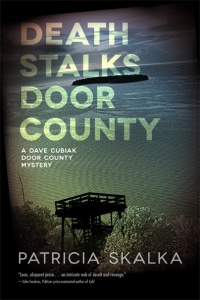
Cat Rambo
I took another online workshop with Cat Rambo. Isn’t Cat Rambo the best name ever? I wish I had one that was as cool.
Anyway, this workshop was on flash fiction, conducted via Google Hangout. You may be asking what I got out of it. Because that’s the point of taking writing workshops, right? Well, it’s one of the two points. The first point is that you get to interact with other writers. There were some terrific writers taking it. I was able to find out the twitter handles and/or web sites for a couple of them – Heather Clitheroe and Sunil Patel – so now I can keep track of them. Cat also shared some markets with us, which is always helpful.
The second point has to do with what I might or might not have learned. All told, I’m glad I took the workshop. I enjoyed the other writers’ work, and I got a reminder about “timed writing”. This is not new stuff, as Cat would say. She took it from Natalie Goldberg’s Writing Down the Bones. The idea is—and anyone who’s done word sprints as part of nanowrimo or with a writer’s group generally is familiar with this, even if they don’t know Natalie Goldberg—you write as fast as you can write without stopping. Whatever you write, it’s all good. Okay, maybe it’s not all good. You have permission to write the worst crap imaginable. The point is, you write, whether from a prompt or just on something you already know you want to write about. It may be fabulous, or it may be dreck. Most likely, though, you will at least get some sort of nugget from it that’s worth working up into a story you actually want to write.
In the workshop, we used 3 prompts. First each participant came up with if/then statements. Then we each wrote the “if” portion of our statements in the Google chat window so everyone could see it. The person who posted after you was the “if” portion you used to create your prompt. You then appended your own “then” portion, and wrote from there. Five minutes, flat out, as fast as you could write. Here’s what I ended up with:
If the house is quiet, then you would be very popular. People like a quiet spot for reading, writing, and just generally to keep from going crazy from all the expectations. They work, they socialize, they help others, but then what?
You’d be turning them away in droves. You might, unhappily, end up with a house that is no longer quiet. Then you would lose your cachet entirely. People would look around and see the turmoil and hear the cacophony and say to themselves, “why am I here? How is this better than just going home?”
And they would go home.
Then, finally, blessedly, the house would be quiet again. What would you do with yourself? Would you take a flash fiction class? That’s what I’d do, but really, you have to please yourself. Let’s imagine that you’d like to paint something, instead. Paint your quiet house, with gray clouds looming, but one ray going into one window. That’s your inspiration, the reason for your quiet house.
Mine was clearly not fiction. Also not good. I was nervous, okay? I was going with the ‘it doesn’t matter what you write, just write, there’s no wrong way to do this.”
That might be true, but there are better ways to write, as became abundantly clear after other people read their results aloud. My next two outings were more successful. The second writing came from a written prompt.
-EDIT-I started by including my result from the second timed writing when I realized Cat might want to use the prompt in future workshops, so I’ve removed it -/EDIT-
The third prompt was a picture Cat had saved on her Pinterest page. I also enjoyed the results from that prompt, but it needs work, so I’m going to improve it before I share. Here’s the picture, though:

Image for writing prompt – Georges Méliès via Cat Rambo
So, was the workshop valuable? Yes, to some extent. But I still have an issue that I really need to concentrate on: how do you mine the really good stuff from a timed writing and go from there? This is not the kind of issue that’s easily covered in a two-hour online workshop. It’s more the kind of thing you could spend a lifetime doing. So as much as I enjoyed the workshop, I still have to figure out the next part, which is making my writing not crappy. We’ll see how that goes.
I’m revising a novel right now, which I hope to have a readable draft of by early June, before I go attend the Writing the Other Workshop and Retreat in Chattanooga. Did I mention I’ll need beta readers? Please comment below, message me, or email me if you’re willing and able to help with that. Thanks so much!




